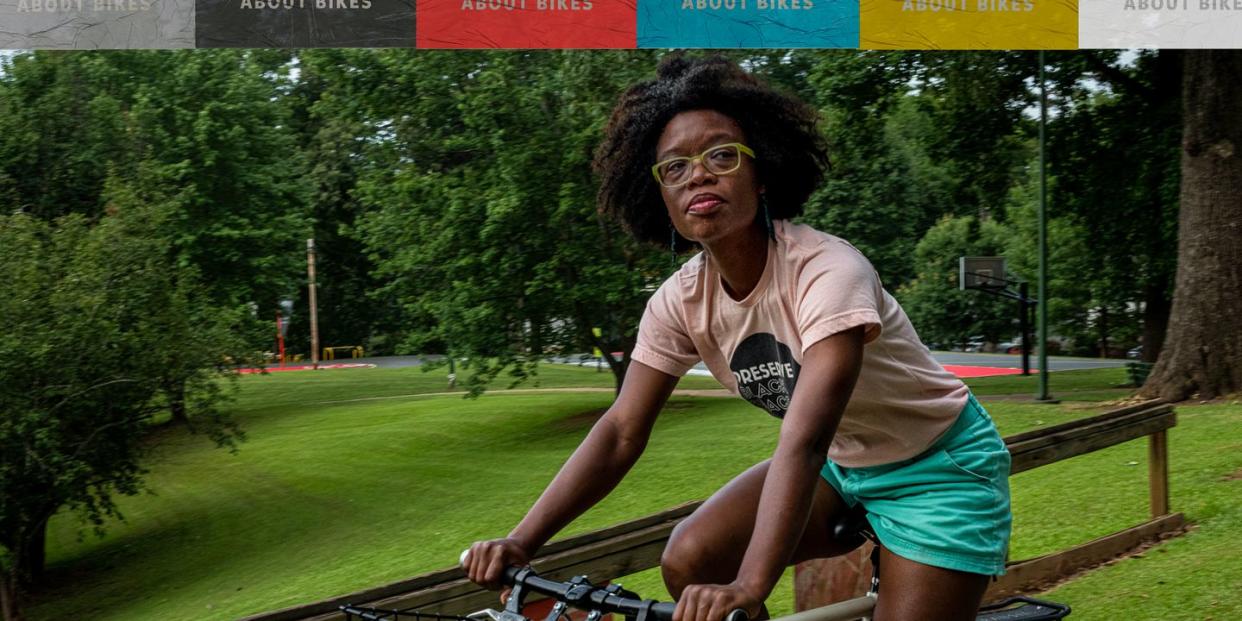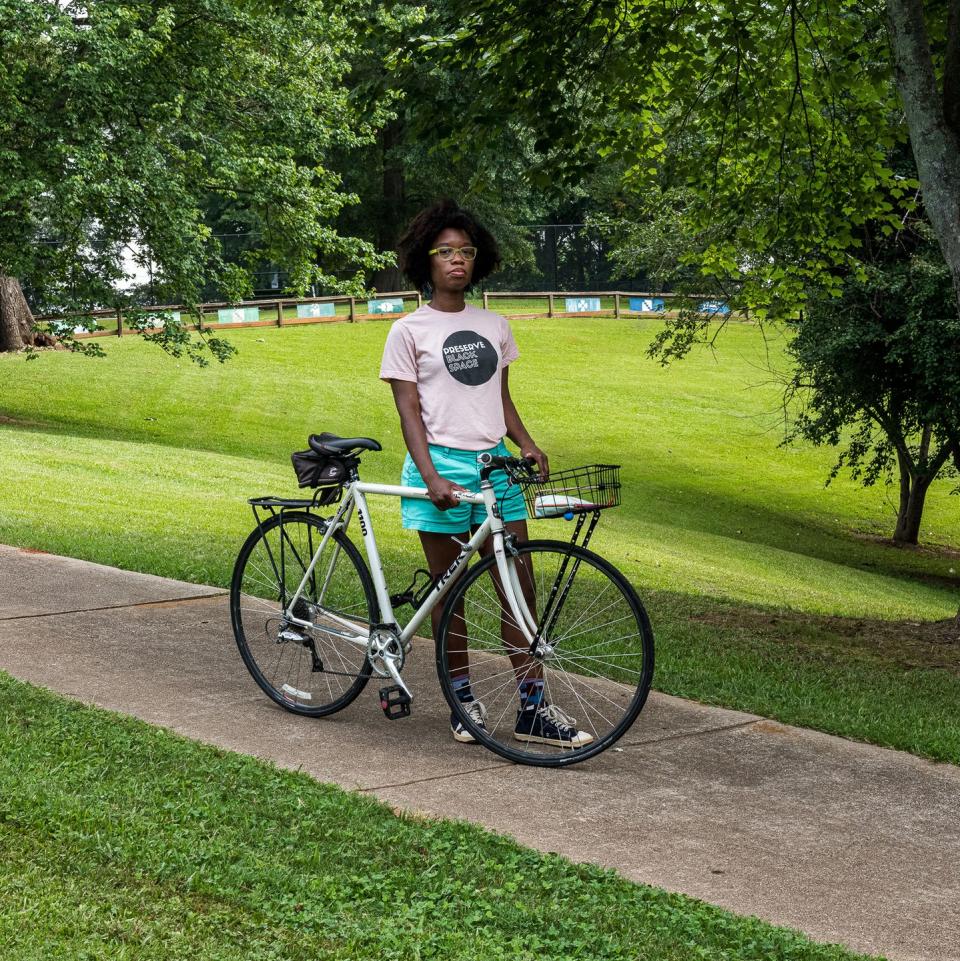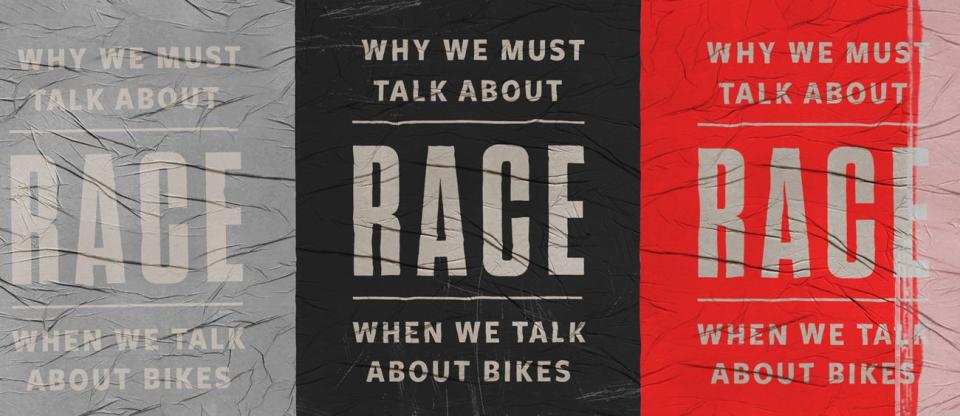Nedra Deadwyler

Being a Black woman cyclist means that I’m carrying on a tradition and am part of a legacy of Black cyclists. My hometown of Atlanta has a tremendous history of Black people being active outdoors on a bike. During the 1940s, Black elites in Atlanta hosted cycling and hiking events that ended with a social party at Lincoln, the Black country club. Bicycle derbies and races were commonly held for Black children and adults, and were hosted by the YMCA, bicycle shops, speedways, Black neighborhoods, and Morris Brown College (a historically Black college). Even the Depression-era WPA hosted one at Washington Park in Atlanta, the first park that was built for Blacks during segregation. Local Black cycling advocate Bill T. Wright biked across the U.S. and to Mexico and Canada in the 1950s, and went to the White House to demand safer cycling conditions from President Eisenhower. And throughout the early 20th century, notable educator and NAACP leader George Towns was among many Black citizens to ride their bike as an alternative to the substandard and often dangerous (for Black people) segregated public streetcars and buses. Cycling has long been part of our culture for sport, fun, exercise, and as a tool of liberation—and continues to be all of those things today.
Life as a Black person on a bicycle is not much different than when I’m off. Walking into the grocery store or sitting on my couch, I have the same level of vulnerability to violent extremes that can be enacted on me at any point. Poet Claudia Rankine said “because white men can't police their imagination Black men are dying.” Botham Jean and Beonna Taylor were both shot and killed in their homes by police. I do not know one white friend who worries about being shot and killed. I do not have one white friend who thinks twice when pulled over by the police. I do not have one white friend who was followed while shopping. I do not have one white friend whose intelligence has ever been questioned. I am scared when pulled over by the police. I have been followed when shopping. A white person could say the exact thing I said and not be questioned.

Talking about my experience while cycling, includes talking about race and gender. Here’s the thing, “The average white American has 91 white friends, 1 Black friend, 1 Latino friend, 1 Asian friend, 1 mixed race friend, 1 other race friend, and 3 friends of unknown race.” This means that most white folks know nothing about people of different racial backgrounds. Media does not help in this situation as it only perpetuates gross stereotypes. This also means that their assumptions about race have not been challenged. And they may have not had to deal with their own racial identity as a white person and its connection to this country’s legacy of oppression and systemic racism and legacy of violence and genocide towards Black people. In this country, we tell an incomplete history about the U.S. For people such as myself to speak about my experiences is important especially when it comes to issues about planning and infrastructure, events and industry, business and communities. Being silent does not cause racism, it shines a light on it and forces change.
It is a beautiful thing to see the high numbers of people who are not Black participating in Uprising 2020, the newest civil rights movement. I hope that the energy and motivation continues until real systemic change takes place. This totally requires a high level of unity. We see that in team sports and athleticism all the time. The only way to win is that people cooperate and work together. In matters of achieving racial justice, we all must follow Black leaders who have organized, researched, worked on these issues for a long time.
It is imperative that if anyone reading this wants to get involved in the movement happening right now and hasn’t been involved in creating more just communities that they first begin by examining themselves and engaging their own racial identity and its formation. There are so many resources available online. Research Black-led organizations either local or national and sign up to support and participate with one of them. Achieving racial justice is something where throwing money at it will not make it disappear neither will posting a Black Lives Matter sign in the yard.
Get involved with people, build community with them, and show real solidarity. Read up on being a good ally. There is a right and wrong way. Joining the movement could also mean engaging one’s white friends and family members. There is a spectrum of addressing race and each part of the spectrum makes a difference. Don’t expect Black people to educate you or support your progress. Get in and do the work by efforting and availing yourself. I am certain that once someone is moved with compassion and authentically experiences their own mental shift around race and racism, they will no longer be defensive or want to remain ignorant about the impacts of racism.
More Stories from Black People Who Love Bikes

You Might Also Like

